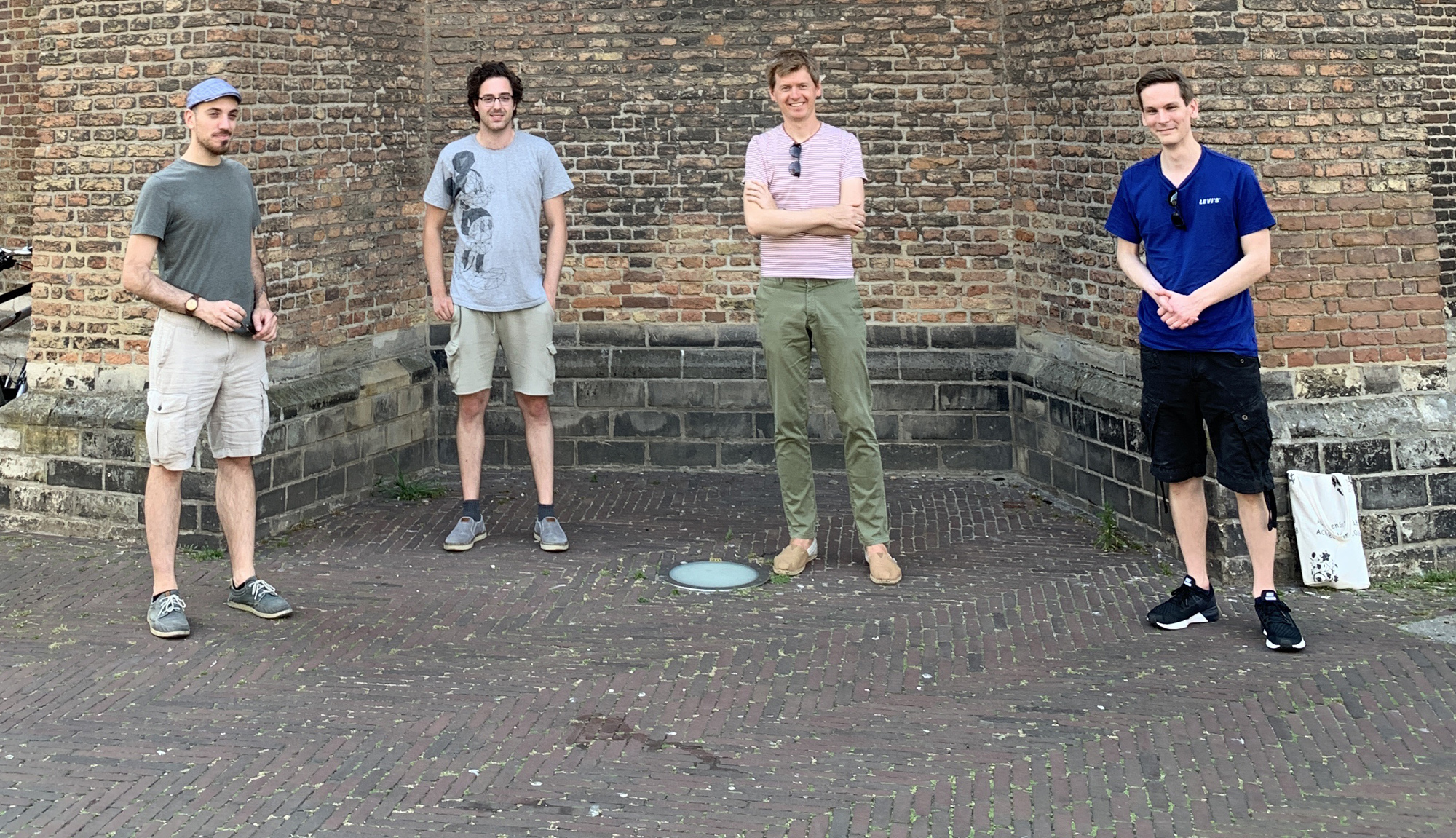The Internet of Things includes billions of devices. Fitting these with batteries would cause a disaster. An EEMCS research group has a better idea: intermittent computing.
The research team Carlo Delle Donne, Vito Kortbeek, Przemysław Pawełczak, Jasper de Winkel on their way to the pub. (Photo: Personal collection)
“We need to say goodbye to batteries,” says Przemysław Pawełczak, Assistant Professor at TU Delft’s Embedded and Networked Systems (ENS) group at the Faculty of Electrical Engineering, Mathematics and Computer Sciences (EEMCS). Pawełczak refers to the Internet of Things (IoT) in which billions of sensors and machines will communicate and work together towards smart applications. Although promising and futuristic, billions of battery-powered devices would pose a big problem: environmental, and also practical. Replacing batteries would require a lot of maintenance, and produce tons of chemical waste.
Replacing batteries by solar panels or wind turbines is not a solution, because their power is not continuous. Imagine performing a computation on a computer that shuts down multiple times per second. This is the challenge of Intermittent Computing: allowing a device to function despite frequent power cuts.
Double solution
Previously, this could only be done by regularly writing the state of the programme to a suitable memory. However, saving data requires energy and it leaves less time for useful tasks. Thanks to Pawełczak’s research team at the ENS group and scientists from Northwestern University, Clemson University (USA) and the University of Trento (Italy), this overhead can be reduced by the novel Time-sensitive Intermittent Computing System (TICS) software library, in which PhD student Vito Kortbeek had the lead.
ENS researchers have also come up with a new way to keep track of time across power failures. Reliable time registration is important for computer applications, but even state-of-the-art clocks have long start-up times and are therefore useless in devices that shut down frequently. “The new sensing hardware, called Botoks, measures time by observing the discharge time of a bank of small capacitors,” explains Jasper de Winkel, PhD student at ENS, who helped develop the electronics.
Both TICS and Botoks have just been presented at ACM ASPLOS 2020, one of the most prestigious venues in the field of computer architecture and operating systems. “Both papers have artifacts available so people can easily install them, replicate our results and build upon them,” says PhD student Carlo Delle Donne, who worked on Botoks with De Winkel.
Outlook
Nonetheless, they don’t expect intermittent computing to be around within the next few years. “The industry is still exploring the basics of the IoT, things like contactless payment. Applications like that don’t require such a sophisticated tool yet”, says Delle Donne.
So, is Intermittent Computing a purely academic exercise? Pawełczak thinks not. “The industry is still very interested in this concept,” he adds. “The research by De Winkel and Kortbeek is made possible by a consortium of companies working towards battery-free IoT under the umbrella of a nationwide NWO co-sponsored project. Their two papers are an example of what collaboration between universities and companies can deliver.”
Chiel de Groot / Intern science desk



Comments are closed.